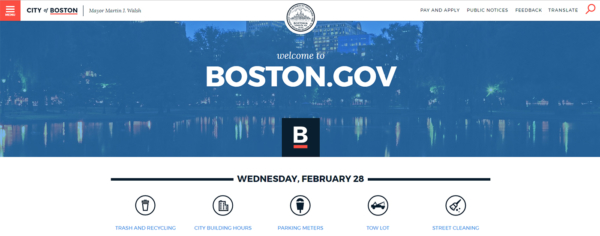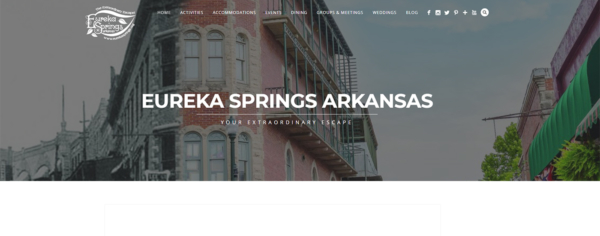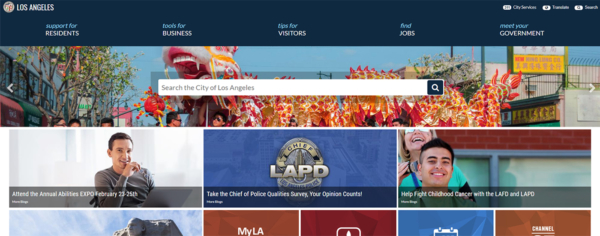5 Municipalities Doing Captioning Right
Updated: September 20, 2023
Although the FCC exempts PEG content (public, educational, and government access) from online captioning requirements, Title II of the ADA states “no qualified individual with a disability shall, by reason of such disability, be excluded from participation in or be denied the benefits of services, programs, or activities of a public entity.”
Furthermore, the ADA’s Guide for Small Towns specifically calls for the use of “auxillary aids” when communicating information to citizens with disabilities
The ADA’s Guide for Small Towns also states:
We have found that city council and town-hall style meeting videos are the most commonly requested content for captioning on local government websites. If municipal governments really want to “ensure that communications with members of the public” through their websites, including “participants with disabilities,” are “as effective as communications with others,” then providing accurate transcripts or captions for this kind of video content is absolutely necessary.
We wanted to highlighted some of the best captioning programs in local government to give readers an idea of how their county, city, town, or village should be complying with the ADA and communicating information over video in an accessible manner. We scoured the websites of local government bodies from coast to coast looking for the best city-council-meeting-style captions in municipal government and here’s what we found:
1. Islamorada, Florida
Halfway between Miami and Key West on the US 1 sits the sunny village of Islamorada, Florida.
Islamorada — known as the Village of Islands, sports fishing “capital of the world,” and one time home to Red Sox baseball legend Ted Williams — may just have the best closed captioning program of any local government body in the United States of America.
If you look at their city council video archives, Islamorada’s captions are almost perfectly accurate, time-synchronized with the video, and free of virtually any errors that prevent someone who is deaf or hard of hearing from understanding the video.
They also have an excellent web accessibility and captioning policy on their website that explains which videos are captioned and how to request captions for a video.
As far as we know, Islamorada is the gold standard for video captioning in American local government.
2. Boston, Massachusetts
We are delighted to include in this list the City of Boston, home to the 3Play Media’s headquarters.
Boston’s got a pretty good captioning program down there at City Hall. Most city council videos going back about three years are captioned. From initial impressions, accuracy seems fairly high and it is easy to tell when speakers change.
The captions appear to be generated by a stenographer service and are burned into the video recording itself. The font leaves something to be desired, and all letters are capitalized which makes following the captions a bit exhausting. But overall, the city’s council meeting archive captions seem comprehensive and comprehensible, which is certainly commendable.
3. Eureka Springs, Arkansas
For a small town of around 2,000 people, Eureka Springs Arkansas is still doing better than most municipal governments out there when it comes to captioning their videos.
Eureka Springs chose to host their videos on YouTube which means their videos are automatically captioned by YouTube’s speech recognition software. Many towns and cities across America do the same, but Eureka Springs earns a spot on this list because in the Fall of 2017 they began editing their videos’ captions for spelling accuracy.
While there are still some errors like sentences bleeding into each other, a lack of punctuation, and other details that make caption comprehension a little difficult, we applaud Eureka Springs for going into those auto-captions and cleaning things up!
4. Hawaii County, Hawaii
Like Boston, Hawaii County’s government seems to re-use stenographer captions or some other live captioning service for their city council meetings.
The accuracy is a bit worse (lots of misspellings), and time-synchronization with speakers in the video could use a lot of improvement.
However, it appears the videos on their website are captioned with enough accuracy that deaf and heard of hearing viewers will likely have a good idea of what’s being said in the video. Additionally, it appears almost all their videos have captions, which is comparatively impressive considering most of the sites we encountered had no captions at all. If you’re going to put a video on your website, at least attempting to make it accessible is better than nothing!
5. Los Angeles, California
LA uses CART, a live captioning service, and republishes those same captions for on-demand viewing.
While time synchronization isn’t always perfect with CART, and most of the little news segments at the beginning of each city council meeting are not captioned, LA’s city government provides downloadable transcripts of the CART captions and has captioned all of their city council meetings going back to 2008 — all of which is available on their website.
You know LA’s hip because they were captioning before it was cool.
How to make your local government videos accessible
Local government entities tend to be busy and are often strapped for resources, but providing accommodations for people with disabilities is the law.
If you want to ensure your hearing impaired citizens can access your archived city council meetings and town hall events, at the very least you can transcribe your videos. An accurate transcript of a meeting’s audio is a reasonable accommodation to associate with a video. And while you’re at it, you might as well add closed captions — it’s just one extra step. Plus, taking these actions proactively by making video transcription part of your video publishing workflow means you don’t have to worry about accommodation requests ever again.
Get started transcribing and captioning your videos today!
Further Reading

Subscribe to the Blog Digest
Sign up to receive our blog digest and other information on this topic. You can unsubscribe anytime.
By subscribing you agree to our privacy policy.











